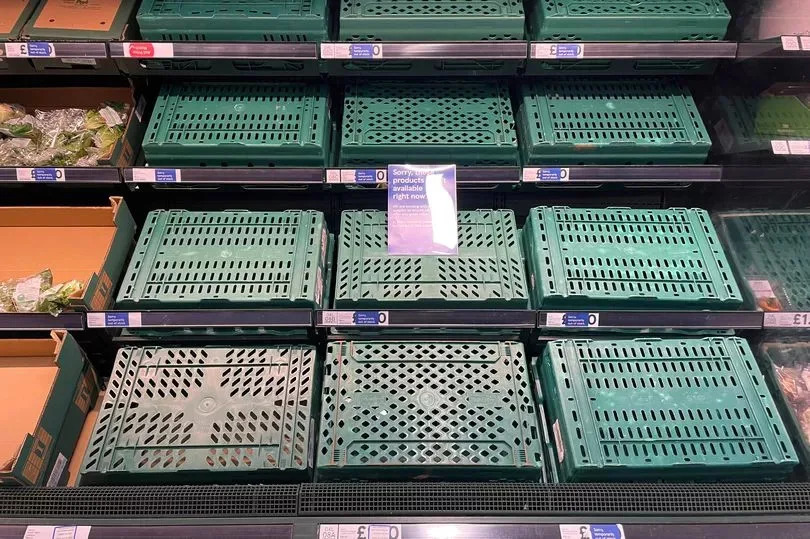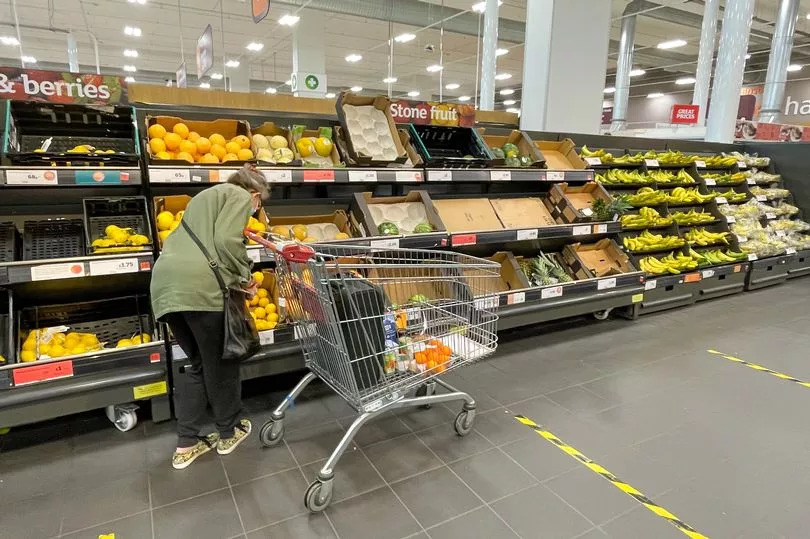Shoppers across Wales may find that some foods could become harder to find after the country recorded its hottest summer on record. Experts say the extreme weather is already affecting farming and food production – and the knock-on effects could soon be seen on supermarket shelves.
John Crimes, an agricultural consultant with CARA in west Wales works with experts and farmers around the country, and told WalesOnline that the heat has had a significant impact with the harvest coming earlier this year. This has made fresh fruit more readily available sooner, but could mean that it is harder to come by later down the line this year.
He explained: “Farmers in Wales had a very good harvest but it’s come very much earlier so if people are looking for fresh fruit you’re either going to see an increased level of imported fruit which will probably be more expensive, or you may just struggle to get fruit all year round.
READ MORE: M&S announces closure of Welsh store by the end of the month
READ MORE: Woman deliberately ended her life in horrific incident on Welsh bypass
“Although the harvest was good it came in lots of cases three to four weeks earlier and most of that product’s been sold, so that would be an impact which consumers might see on supermarket shelves.”
The heat has also had a significant impact on dairy cows leading to lower fertility rates and increased illness. For the biggest stories in Wales first, sign up to our daily newsletter here
John explains that milk prices have actually fallen slightly on commodity markets which is a change that could filter through to what we pay in shops over the coming weeks.
He noted: “There’s been a couple of announcements of milk price drops. Commodity market prices are down on some of the items like milk powder and mozzarella et cetera, they are down so that potentially might filter through, too.
“At retail, people also might see some slight reductions in the price of some of these milk products, but on red meat, I think they’re probably going to see slight increases going forwards.”

General image of empty shelves at a Tesco supermarket -Credit:2023 Getty Images
Farmers are already taking steps to adapt to these shifting conditions, from planting more drought-resistant crops to changing how they house and feed their livestock but there has been widespread concern around what the long term effects will be.
The British Retail Consortium linked rising fruit and vegetable prices directly to the hot, dry weather impacting harvests, and farmers have also reported significant reductions in crop yields, with some staple crops like wheat, barley, oats, and oilseed rape experiencing near-record-low yields.
Considering what the recent weather patterns and effects of climate change mean in Wales and the impact on farmers, John is also confident that if similar conditions continue even just over the next few years, we will have a bigger problem on our hands.
He said: “Once the surplus forage that’s been produced in the last year or two, if we get a few more summers like this, once that surplus is gone, it’s gone and if we’re going to run into more dry conditions where forage isn’t going to be available, numbers will drop.
“People won’t breed as many animals and then quite quickly we get into a position of quite a lot less production and a lot less – certainly domestic food – will be available.
“Temperatures are increasing and due to climate change, it is a bit more complicated than it used to be.”
What can you do?
According to John, the best thing to do if you are concerned, is to support local produce where possible.
But there is also wide range of information available to people in Wales if you want to stay up to date on issues such as this one, and you can always reach out to your local councillors or MPs to ask for practical measures that help farmers cope with extreme weather, like better water management or support for crops that can handle dry conditions.
Some useful websites you could visit include:
Food, Farming and Countryside Commission (FFCC) Wales provides insights into food policy and sustainability in Wales.
Farmer Connect also has useful links and information that can help consumers learn more about the Welsh food industry.
Climate Action Wales also offers practical tips on making sustainable food choices, such as eating local, seasonal produce and reducing food waste.
